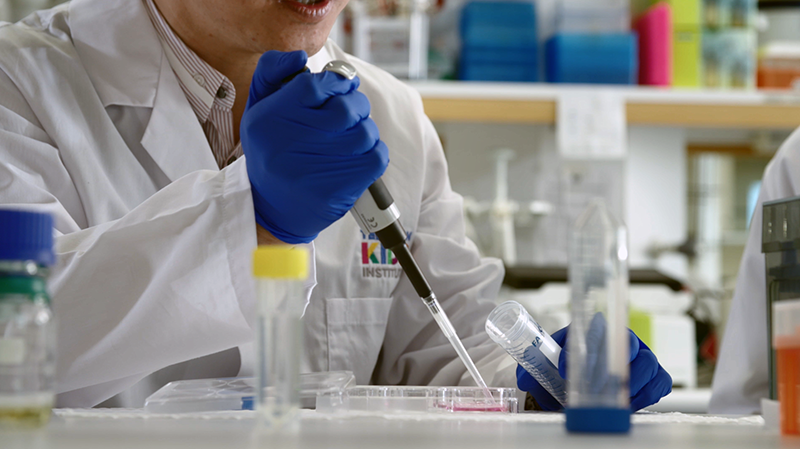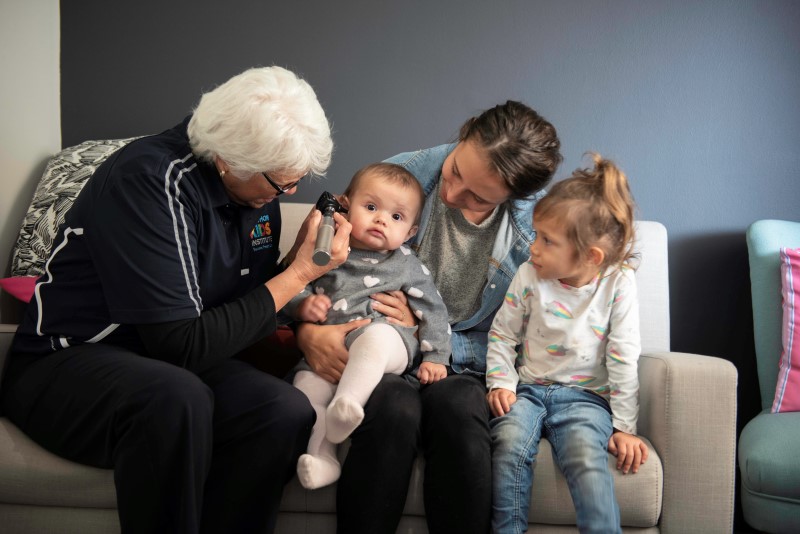Search
Rates of several vaccine preventable diseases, and associated hospitalisation, are higher among Aboriginal and/or Torres Strait Islander children than non-Indigenous children. Western Australia has among the lowest childhood vaccine coverage in Australia, particularly among Aboriginal and/or Torres Strait Islander children. Delayed vaccination is also more common in this population. This project aimed to understand the barriers and facilitators to vaccine uptake and timeliness among Aboriginal and/or Torres Strait Islander children aged under five years in Boorloo (Perth).

The Kids researchers will use nearly $8.5 million awarded by the National Health and Medical Research Council (NHMRC) to tackle health issues including respiratory disease, brain cancer, vaccination and Aboriginal health.

Researchers from The Kids Research Institute Australia have been awarded a $1.1 million NHMRC ‘Targeted Call for Hearing Health’ grant to conduct the first ever study following Aboriginal babies from birth through to five years to uncover the true prevalence of middle ear infections and hearing loss.

The Wesfarmers Centre of Vaccines and Infectious Diseases has appointed Mrs Valerie Swift to a newly created Aboriginal Cultural Guidance Advisor position.
This article considers the role of governance in Indigenous medical education research through the lens of an Australian Aboriginal research project titled Healing Conversations. The Healing Conversations project is developing and testing a targeted educational framework for improved clinical communication between healthcare practitioners and Australian Aboriginal peoples in regional and urban locations. It is proposed that an effective governance approach can support Indigenous and non-Indigenous stakeholders to work together in decision-making structures to enable outcomes that promote and prioritise Indigenous worldviews and values in medical education research.
The emerging literature on desistance (and recovery from addictions) has focused on key life-course transitions that can be characterised as the need for jobs (meaningful activities), friends (transitioning to pro-social) and houses (a home free from threat). The term ‘recovery capital’ is used to characterise personal, social and community resources an individual can draw upon to support their recovery, partly bridging agentic (personal) and structural (community) factors.
The Australasian guidelines recommend use of the CHA2 DS2 -VA schema to stratify ischaemic stroke risk in patients with non-valvular atrial fibrillation (N-VAF) and determine risk thresholds for recommending oral anticoagulant (OAC) therapy. However, the CHA2 DS2 -VA score has not been validated in a representative Australian population cohort with N-VAF, including in Aboriginal people who are known to have a higher age-adjusted stroke risk than other Australians.
Indigenous people tend to exhibit a higher burden of disability than their non-Indigenous counterparts, and are often underserved by disability services. Engaging appropriately with Indigenous communities, families and individuals in the initial stages of disability assessment and planning is crucial in order to build trust and understanding of disability service models and ensure that Indigenous people receive support that is tailored to their needs and cultural realities. This article aims to identify key elements of culturally competent communication in Indigenous disability assessment and planning, and provide recommendations for strengthening capacity in this area.
The epidemiology of invasive meningococcal disease has changed over the last decade and there has been an increase in cases caused by serogroup W135, particularly in Indigenous children. Extra‐meningeal and atypical presentations are associated with serogroup W and may delay diagnosis and therefore appropriate treatment. Public and clinician awareness are essential in facilitating effective new vaccine schedule implementation.
Risk-based recommendations are common for pneumococcal vaccines but little is known about their uptake. In Australia, pneumococcal conjugate vaccine (PCV) was funded only for Aboriginal or Torres Strait Islander (Indigenous) children and those with underlying medical conditions in 2001, and then there were different booster dose recommendations depending on risk after the introduction of universal PCV vaccination in 2005.
